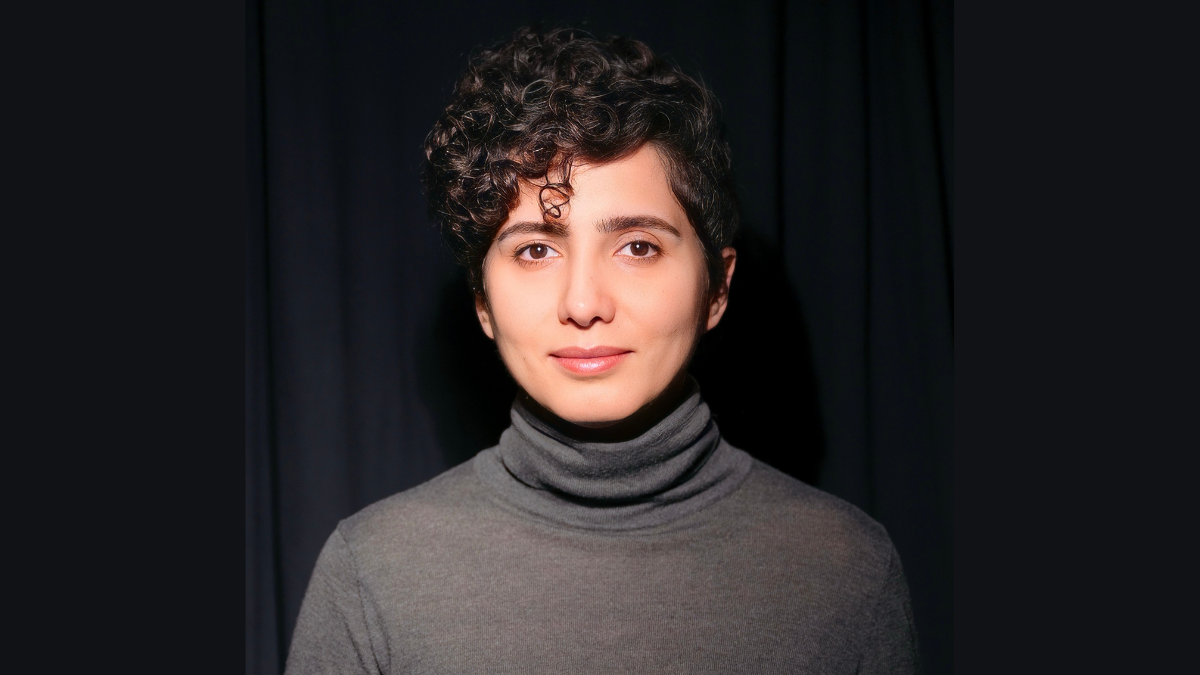February 20, 2024
By Betty Zou
Saeedeh Moayedi-Nia first witnessed inequities in health care access when, as a nursing student in Iran, she volunteered with a children’s rights group helping Afghan child refugees. Because many of the children didn’t have birth certificates and other documentation, they weren’t able to be vaccinated through the country’s national immunization program.
“I was very young and idealistic but I understood that something could be done to mitigate the barriers to health care access.”
That desire to make health care more accessible led her to complete a master’s degree in international health at Copenhagen University, where she became interested in the experiences of people living with HIV. Following a second master’s degree in epidemiology from Université de Montréal, she arrived at the University of Toronto to pursue her PhD with Ann Burchell, an associate professor of family and community medicine in U of T’s Temerty Faculty of Medicine and a scientist at the MAP Centre for Urban Health Solutions at St. Michael’s Hospital, a site of Unity Health Toronto.
With the support of a Doctoral Award from the Emerging and Pandemic Infections Consortium, Moayedi-Nia is studying the impact of the COVID-19 pandemic on health care engagement among people living with HIV in Ontario.
The idea for the project came from discussions with HIV community advocates who were worried about how the pandemic would affect their community’s ability to receive medical care.
Moayedi-Nia’s own interest in the project grew out of her experience volunteering with AIDS Community Care Montreal’s (ACCM) Buddy Program, where she was paired with a man living with HIV to provide practical and emotional support. When everything shut down in 2020, she saw how he became more isolated and how different his experience of the pandemic was from her own.
“Even before COVID-19, people living with HIV were more likely than the general population to experience health inequities because they are more likely to have low income or be members of racial and/or sexual minorities,” says Moayedi-Nia.
“We think that COVID-19 may have disproportionally impacted them more.”
To measure health care engagement, she will be using health datasets housed at the Institute for Clinical and Evaluative Sciences (ICES) combined with linked data from the Ontario HIV Treatment Network Cohort Study. The first set of metrics she will look at focuses on engagement with HIV care. These include monthly HIV outpatient visits, retention in care and viral load suppression. Secondly, she will compare participation in Ontario’s cancer and diabetes screening programs between people living with HIV and those without HIV.
For both measures of health care engagement, Moayedi-Nia will zero in on a three-year period before the first lockdowns in March 2020 and a three-year period from March 2020 to March 2023. This will allow her to directly assess the impact of the pandemic and to determine how engagement rates may or may not have recovered since then.
A previous study from U of T professor Aisha Lofters found that the COVID-19 pandemic widened disparities in breast and colorectal cancer screening in Ontario based on income and immigration status. Moayedi-Nia thinks that her study — the first to look specifically at people living with HIV — will show a similar, if not more extreme, pattern of steeper drop-offs and a slower recovery in participation rates among this group.
She also plans to identify the specific individual- and system-level factors that can facilitate or impede health care access. These include individual factors like gender, employment and housing status as well as health system indicators like the type of primary care. She hopes that this work can be used to improve health care access and delivery during future disruptions.
After moving to Toronto in 2022 to start her PhD, Moayedi-Nia stayed in touch with the man she had come to know over her four years of volunteering with the ACCM until their communications suddenly dropped off. She would later find out through his family that he had been diagnosed with stage IV cancer and passed away not long after. While she will never know for certain, she can’t help but wonder whether the delays in health care delivery caused by the pandemic contributed to her friend’s late-stage cancer diagnosis and death.
“Social and health care disruptions will happen again in the future. To be prepared, we need to learn from what happened in the past and what policies and interventions worked and didn’t work.”
By documenting the pandemic’s impact on people living with HIV, Moayedi-Nia’s research is providing critical evidence that will guide future policies and plans to reduce health inequities and protect vulnerable communities.


